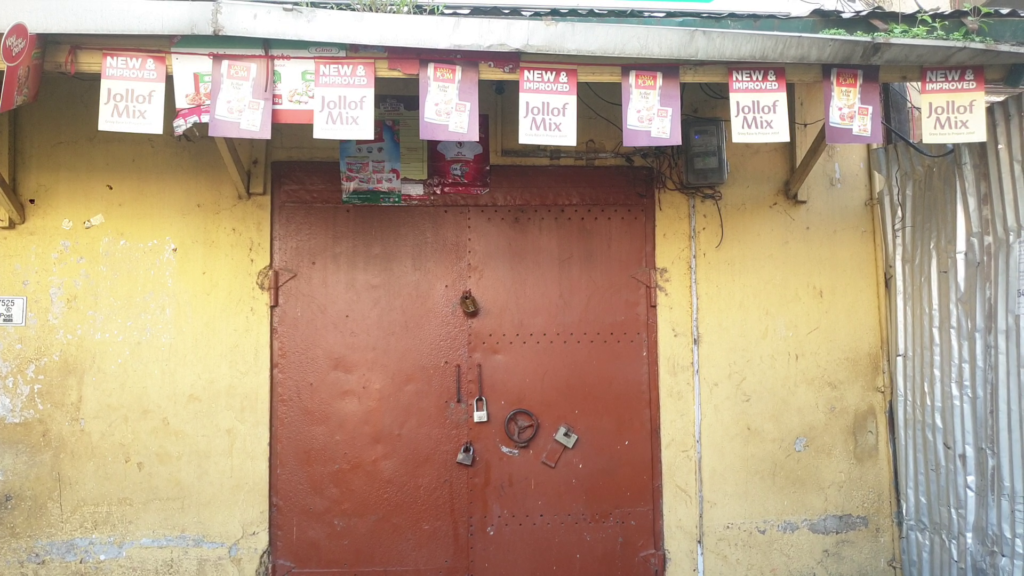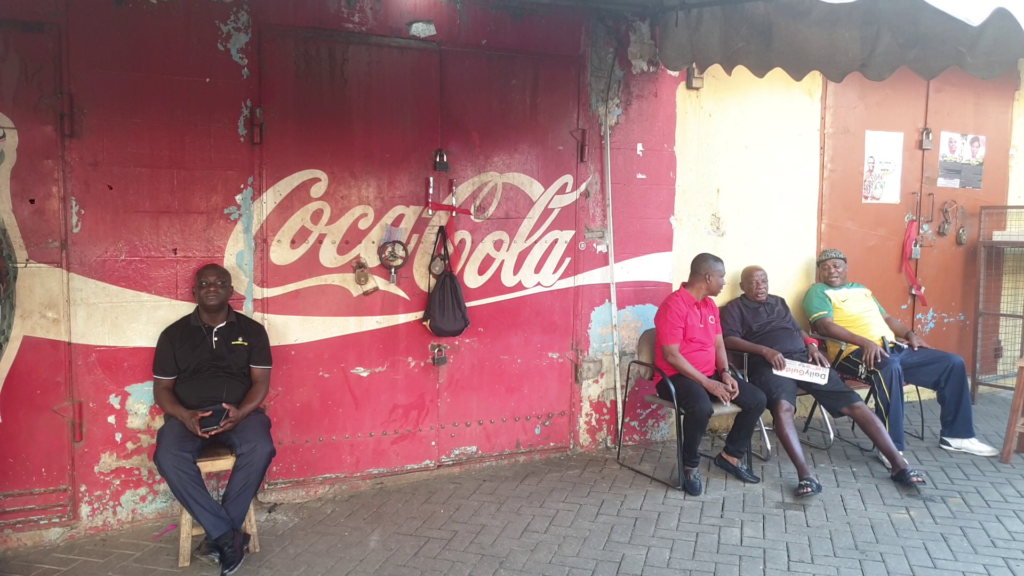Traders in parts of the central business district of Adum in Kumasi have locked up their shops in protest against rising taxation on their goods.
They lament the pressure to honour payment of income tax, high cost of store rentals and charges from the metropolitan assembly is eroding their profits.
The cumulative taxes, they say, is crippling their businesses.
The usual hustle and bustle at the Central Business District of Adum has been absent.

Major shops have been locked up. Red pieces of cloth hung at the entrance of these closed shops.
Some shop owners idle around, some sitting in front of their locked shops.
They say they have been directed by leaders of the Adum Traders Association to lock up their shops.
“As it stands, we are unable to pay our taxes. All along we take that money from our profit to pay the government. The taxes have swallowed us. We cannot pay. The prices of goods have soared so high that it is unbearable,” Kwaku Appiah laments.

The traders, including some wholesalers and retailers, lament their profit margins are adversely affected by high taxation.
To make profit, retailers are mandated to add up various amounts on goods to sell to consumers.
This they say has resulted in the cost rise of products.

Another trader says “Today 10 cedis can be added to the wholesale price of a particular commodity. Tomorrow, an additional 20 cedis will be added. A week later, there will be an additional 50 cedis increment. There is nothing we can do about it.”
Other traders are unhappy with the activities of some officials of the Ghana Revenue Authority posted to their shops.
Ghana Revenue Authority agents have been posted to our shops to deduct 6% from every product purchased. We are also unhappy with the numerous charges of officials from the Kumasi Metropolitan Assembly. The cedi continues to depreciate affecting our profit margins. Business is just slow lately. How can our businesses survive under these harsh conditions?” Ama Darkoaa quizzed.

Some shoppers who had travelled from outside Kumasi to make purchases were left disappointed and frustrated by the turn of events.
“I came all the way from Mpasaaso in the Brong Ahafo region. I came here to retail provisions. Now that the shops are closed, how will I survive today? I am a single mother. I do not know what to do now. I can’t think straight,” she said.
Rita Lomotey adds “I came from Sunyani this morning. The transport fare is costly. When I come here, I will need the services of a kayeye. The prices of goods are also up every day. People hardly buy from me now. They say my products are costly. Can I survive at all,”
There are ongoing negotiations between the leadership of the traders and the government.
They warn of a possible demonstration if their pleas are not heeded.
Comments